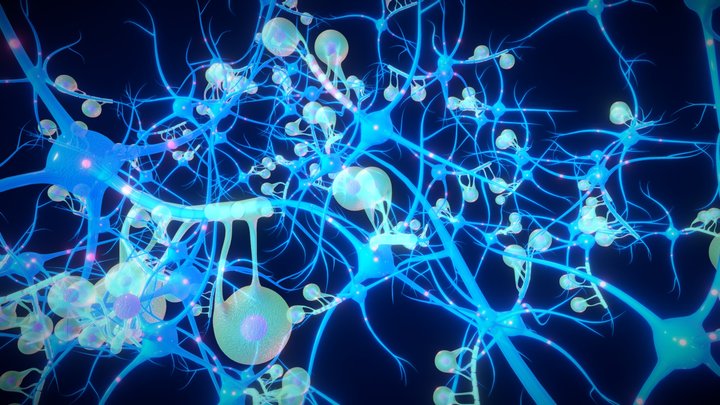
Vitamin D and Depression
Am I Getting Enough Vitamin D?
Vitamin D and depression are being linked by lots of new studies in the field of depression. Studies show you probably aren’t getting enough vitamin D, with most people being very heavily deficient in vitamin D. In some cases deficiencies seem to be higher in women than in men.
This is quite alarming, as the production of most of our hormones relies on good levels of vitamin D. Reduced vitamin D levels would mean reduced levels of some major hormones in the body.
Specifically, the production of the hormones melatonin and serotonin are dependent on vitamin D levels.
These two hormones have been linked to depression for a while and that is no surprise at all.
How exactly vitamin D fits into brain functioning is still being characterized, but there is a lot of excitement in the field of depression studies around vitamin D.

What is Vitamin D?
Vitamin D is a fat-soluble vitamin when consumed through our diets. It is known as cholecalciferol and its main function in the body is to increase body calcium levels.
There are two major ways to obtain vitamin D, sunlight and through your food.
Vitamin D can be made in your skin, yes that is right your skin, in high sunlight conditions. However, with modern work patterns and lifestyles most people spend much of the day indoors, out of the sun.
We make vitamin D in the skin from a cholesterol precursor. Vitamin D is known as a pro-hormone, being able to make many body hormones, and also has antioxidant abilities.
Most of your vitamin D is produced in the skin, however in some countries they don’t even get that much sunlight. They are completely reliant on their diet to obtain enough vitamin D.
These populations need to eat more foods rich in vitamin D, including certain mushrooms, liver, fish and eggs, to satisfy their vitamin D requirements. Most foods do not contain adequate vitamin D to meet our daily requirements.
Alarmingly, there are also high levels of vitamin D deficiency in sunny countries too. This is why vitamin D is becoming a focus in the healthy lifestyle community.

How Do My Vitamin D Levels Influence Depression?
Serotonin and Melatonin
Vitamin D is thought to regulate the level serotonin and melatonin production.
If melatonin levels drop then so do levels of serotonin. This is because serotonin makes surplus melatonin as needed by the body.
Serotonin is a major influencer on depression as it is the happiness chemical, or hormone, in the brain. If serotonin levels drop then depression will tend to increase.
Maintaining strong overall levels of serotonin would encourage more balanced feelings.
This emphasises the importance of high levels of vitamin D to help with depression, as vitamin D is directly involved in serotonin formation from the amino acid tryptophan.
We mentioned serotonin helps to maintain normal levels of melatonin. Melatonin hormone is essential to healthy sleeping patterns and sleep abnormality is heavily linked to depression.
Research suggests that melatonin can help with depression through encouraging healthy sleep patterns.
Vitamin D can help to improve overall body levels of melatonin, through higher serotonin levels, reducing depressive symptoms.
There is also a feedback loop here if you remember from earlier. Higher melatonin levels mean that you are not having to convert excess serotonin to melatonin. This again encourages more balanced feelings.
We’ve also written an article on the top 10 melatonin rich foods to add to your diet that could help with depression too.
Vitamin D Receptors and Neurotransmitter Production
Changes in vitamin D receptors also change and impact other brain neurotransmitters, or brain chemicals, related to depression. These include noradrenaline and dopamine.
Studies have found the changes in these receptors caused by deficiencies in vitamin D could have a negative impact on depressive symptoms.
Vitamin D also activates a nerve growth hormone, neurotrophin, that helps nerves to grow.
Also, a recent development is a possible association between oxytocin and vitamin D production. Oxytocin is an excitatory hormone and might be link vitamin D and depression.
Vitamin D activates areas of the brain that regulate emotion and behaviour.
A mega review of how vitamin D affects depression has concluded that there is a risk of increased depression with vitamin D deficiency. They concluded that supplementation with vitamin D could be of benefit as a natural remedy for depression.
Another review of depression and vitamin D supplementation found that in 12 out of 13 cases where vitamin D supplements we used, symptoms of depression were reduced. In one study, they used around 50,000 IU of Vitamin D and an improvement was seen.
The benefits of vitamin D supplementation for depression seem to speak for itself. One study found that vitamin D deficiency caused a 50% increase in suicide.

Other Ways Vitamin D Influences Brain Health and Depression
Other studies have tried to explore if there are other effects of vitamin D on depression, because of its strong relationship to improve symptoms of depression.
One study argues that vitamin D helps to manage calcium intake into brain cells, reducing depression through normalising brain cell activity.
The study proposed that vitamin D has an effect on balancing the numbers of excitatory to inhibitory nerve cells. This would then influence the feelings you experience.
Nerve cells also need a calcium balance to function. Vitamin D plays a role in normal nerve cell communication too.
Vitamin D has also been proposed to have antioxidant properties in the brain which could help to improve feelings of anxiety and depression.
When your brain is developing vitamin D plays an important role in the structure and development of different brain areas.
It is thought that vitamin D plays a role in reducing neuroinflammation and activating the immune system, which plays an important role in brain functioning.
These are also contributing factors to depression and anxiety, showing again important vitamin D as to maintaining normal brain health.
Conclusion
Vitamin D plays a really important role in regulating calcium intake and producing different hormones.
Both of these functions are essential to normal brain health and reducing depression.
It is clear that there is a worldwide deficiency in vitamin D so this presents an attractive choice as a supplement. Especially considering how difficult it is to obtain adequate vitamin D from our diets and that in warmer countries there are still high levels of deficiencies.
While the exact working mechanisms need to be studied further, when you have this sort of evidence it is quite clear that vitamin D could help with depression.





